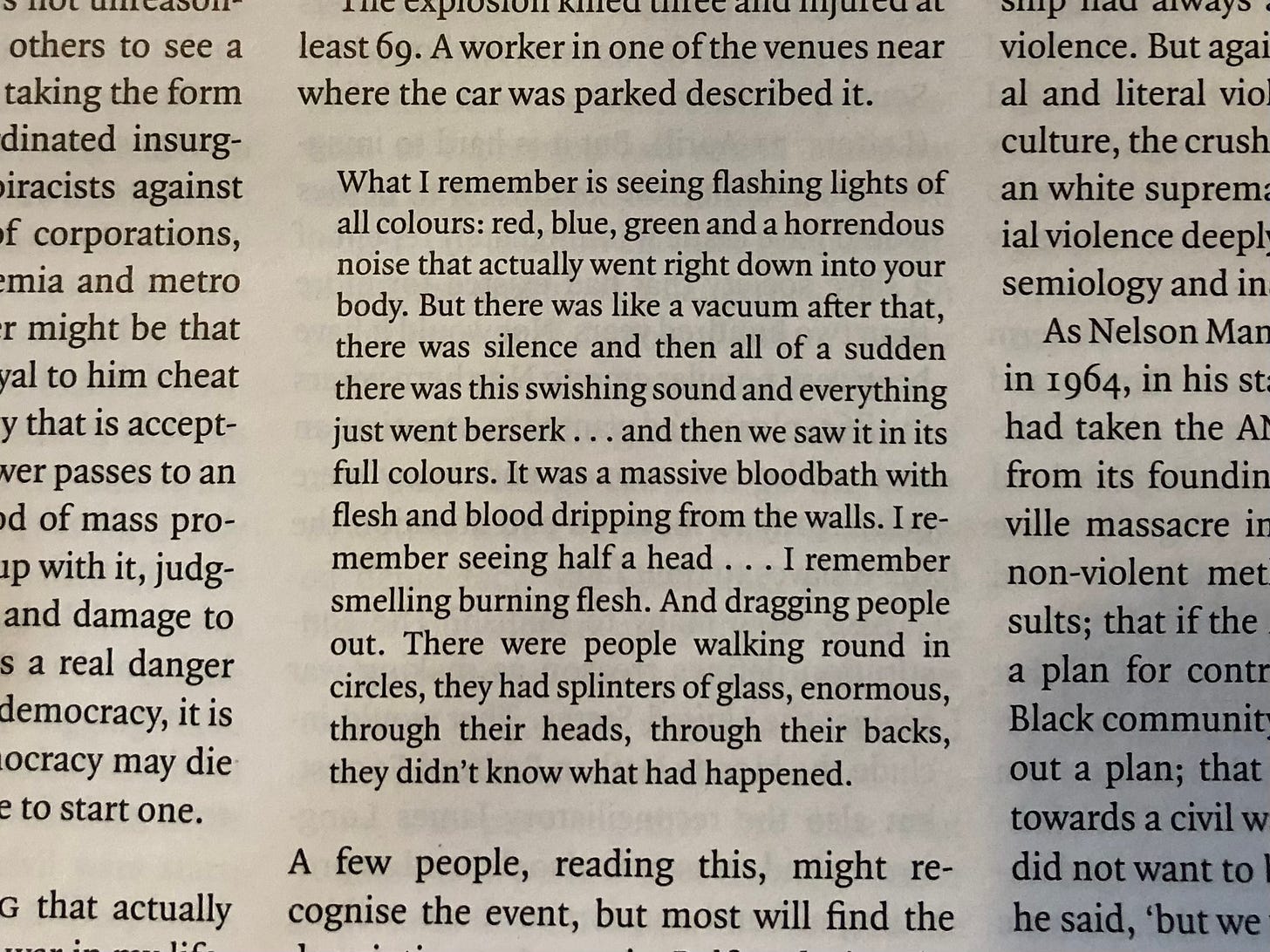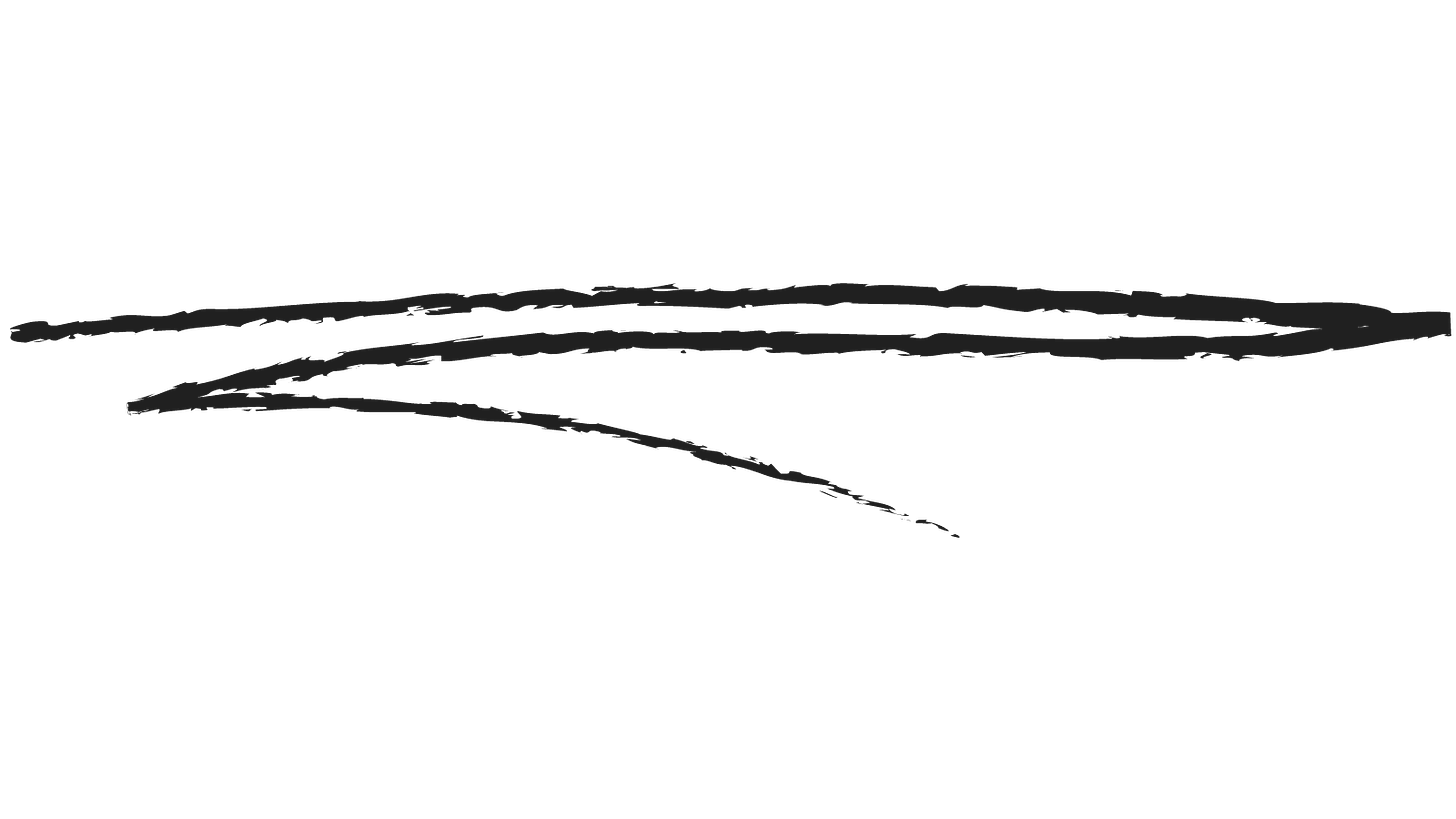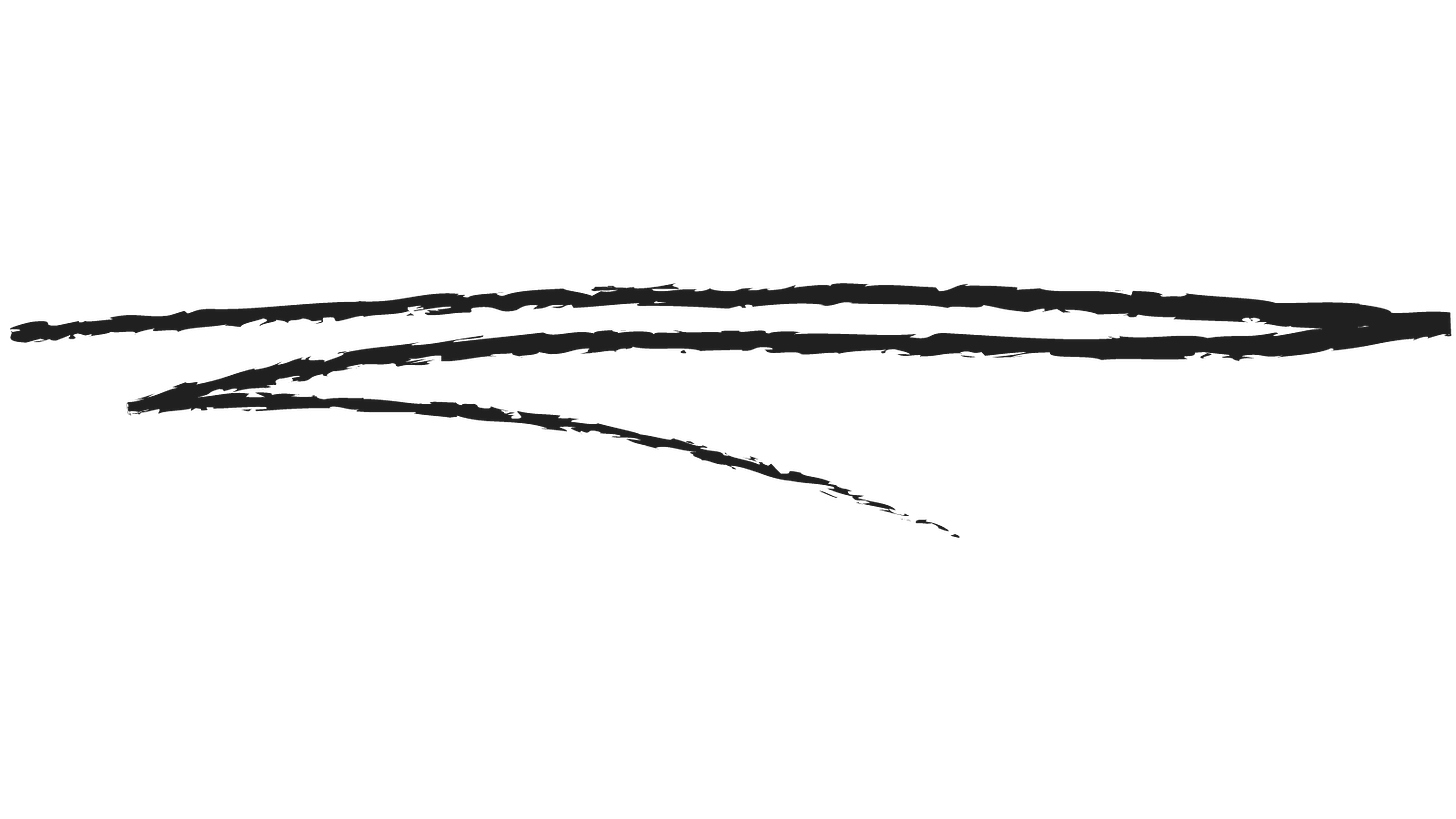[photo: on its way!]
that
Here are three creative things from the past week I’d like to remember.
1. On names numbing narrative // ‘A few people, reading this,’ Meek writes for the LRB on the gruesome passage below, ‘might recognise the event, but most will find the description too generic. Belfast during the Troubles? Beirut? Baghdad? Israel? … There have been so many terrorisms, so many insurgencies, so many civil wars.’ My experience differed: I welcomed the generic. I’ve never been sure how common this is — let me know! — but if whatever I’m reading refers to the name of some real person, place, or event, I often zone out. The unfamiliarity can leave me disheartened, feeling a bit dim, misinformed, even pre-exhausted by the weight of having to research mid-story. Knowing the reference, on the other hand, loads my interpretation with assumptions — I have a narrative, so new stories are going to feel a bit same-old, even where they’re substantially different. (For unfamiliar words, after some practice, I now welcome the chance to pause & search their meaning —I’ll forever remember doing this for the first time in 2018, looking-up ersatz from the opening chapter of Atwood’s Oryx & Crake.) Back to the excerpt below, I found myself latching & wanting to know more. The effect of sharing narrative before placing labels on top (in this case: South Africa, of which I have little knowledge) was that my focus became less distorted; the story less muddied. Perhaps a writing challenge to set at some point?

2. Ramble Book — written & read by Adam Buxton (2020) // The memoir of this audio d’auteur, a rambling celebration of letting your mind wander & the culture of an 80s childhood (I’m 90s but often feel a decade late), was a joyful extension of Buxton’s podcast and the perfect example of how one’s enjoyment can be tightly wound with the voice & style & personality of the creator — rather than the work itself. I’m not sure the physical book would find its way onto my shelves, but the audiobook (read by Adam!) was simply (in a good way) more of the same: hilarious dad-humour and deep-dive / Bowie-centric suggestions.
3. Midsommar — directed by Ari Aster (2019) // Only rewatched last night, but: paganistic mania vs. dramatically alternative lifestyle & attitude towards death (reminded me again, coincidentally, of Atwood’s Oryx & Crake — if you had the opportunity to know how long you would live, perhaps shorter than most but perfectly healthy up to that point, would you take it?); toxic relationships & the dance of trying to please someone who disappoints you; and our small place in nature. (Let me know if you’re aware of other daytime, summery horror films.) I gave it near-top marks on Letterboxd & MUBI.
& // nearly finished Voices of Chernobyl by Svetlana Alexievich (haunting accounts of life before, during, immediately after the explosion — would love to read Alexievich’s workbook of questions prepared vs. asked) + Art Spiegelman’s MAUS (equally haunting: Jewish mice + Nazi cats + illustrated Holocaust = the first & only graphic novel to win the Pulitzer Prize); started Stephen King’s The Dark Tower I: The Gunslinger on audiobook (try the sample because the narrator’s voice, George Guidall, is golden grit); i’m creating lists this week for what i have / will read & watch & listen to, rather than taking what i’m given by subscriptions (although The Sandman audiobooks (Act I & Act II) + new Netflix series were glorious & dark — series seven of Brooklyn 99 is also toit / noice); intend to take better advantage of my MUBI membership.
this
Here are three of my own creative things from the past week.
1. Homework // Chatting with a handful of literature, creative writing, and comparative culture professors this past week — from my undegrad & postgrad university, Royal Holloway University of London, and my most local, Bath Spa University, some of the best departments in the UK for what I want to study — I was reassured to know that my past studies & subsequent career in writing means I’m likely ‘sensible enough’ to bypass an undergrad in literature, creative writing, or journalism in favour of a master’s — provided I put the self-study time in beforehand. So, I’ve been searching. Here’s what I found for free(ish):
George Saunders’ Story Club on Substack, as well as his book A Swim in the Pond in the Rain published earlier this year, is an inexpensive course in close-reading of creative writing, particularly Russian short stories.
How to Read a Novel and How to Read a Poem are a couple of free online FutureLearn short courses from the universities of Edinburgh & York.
The American Novel since 1945 & Introduction to Theory of Literature are free online courses from Yale University.
2. Hay-on-Wye // We spent four days in the lush, green core of Wales, home to one of the world’s biggest & best literary festivals (though we were a couple of months late for that). My partner managed to do what we’d planned: read, relax, deflate. I did cut coffee, after an initial slip-up (it’s a thing I’m trying / often forgetting), but, naturally, despite intentions, my morning spike of energy sent me barrelling around town in book-buying frenzies, followed by the midday angst of not having done the undefinable ‘enough’ with my day. Come early evening, I’d calmed down enough to read. The stack of new books I returned with (Richard Booth’s Bookshop on Lion Street was particularly time-consuming & pleasant, reminiscent of my time working with Hatchards in London) was to be expected, but this was a case study in noting how my natural rhythms work and, rather than becoming frustrated by them, planning with them.
3. On time to process // Swollen & burst veins in the oesophagus, blood across the bathroom floor, sent my nan rushing to hospital with my mum (a nurse) in tow — she was then transferred to a larger one (coincidentally, where I work) for surgery. She’s not out of the woods one week later, but is doing much better. During a long coffee break, where we circled her hospital bed, my mum & uncle tutted that she should take better care of herself: ‘I’m ready to head home now,’ she said, wires & tubes & pumps hanging from her. ‘No’, in unison, we replied. There were two aunts to consider in the tumult. The first was T — she has significant learning disabilities and was taken to a respite centre for a mini-holiday; the second was J — she’d offered to care for nan’s many animals (two dogs, three birds, two horses, maybe a few others I’m not sure — all but the dogs now being rehomed). J didn’t seem to understand the gravity of the situation, was generally lax with her responsibilities, so mum & my uncle went to check how she was getting on. While nan was in hospital, though, J had died — suddenly, by herself in nan’s hallway. I can’t fathom what it was like to find her like that. While I didn’t like J as a person, I felt sad & concerned for those around her: mum, my uncle, and my nan who was in hospital recovering & would have to be told her daughter had died. My sister, to whom I was asked to deliver the news, felt for her two adult children. While listening to the final bits of Adam Buxton’s Ramble Book on the train home from hospital, an hour or so after finding out about J, Buxton quotes his dad who writes about growing old: ‘literally and metaphorically, one goes into the attic looking for reminders and is overwhelmed by the accumulation of things … it’s a bit like turning over a compost heap, where discarded material has not yet had time to achieve a useful metamorphosis.’ I wondered: both as a family member & a person who processes things, understands them, by writing them down & putting them in order, how long does it take to untangle a terrible thing? When can you see, soothe, tease the knot loose, not rid yourself of sadness but think it through without being blinded by it. There are so many perspectives, but which is my own? Try too soon, suggests Buxton, and you risk looking before the moments have had their time to loosen, breakdown, become something useful. I thought about everything that’s happened in my life — since the pandemic started & I left London; since my five years at university; since I was a child — and wondered: what’s ready to make sense of, and what remains tight & tangled?
&
My first (!) comment on my first (!) post — zero — made me giggle-twitch.
It whiffed a bit of the fleeting, empty engagement — largely to put their own name beneath as many things as possible — that I’d stepped away from on other platforms. So, I hope not unpleasantly, I challenged it — not with pointed malice, but with general impatience. (The below correspondence with ‘R’ is mostly rehashed from those comments, which you’re welcome to read on zero if they’ve not been deleted.)
R said zero was ‘too long (for my liking)’ — it could probably be split into a few posts, but there was some ‘good stuff in there’, so I was encouraged to ‘keep writing!’
I took a little time to think through my response. The feedback, at a glance, was entirely friendly, even an attempt to be helpful — I was, also, genuinely delighted to have anyone comment at all. But I feel as though that’s the trap with online engagement. Really, it’s a bit of a lazy summary for a platform that’s meant to be full of creative writers, thinkers, people exploring their creativity and engaging with others’, and so it was the antithesis of my own thoughts on what Substack and its communities exist for. These are learned behaviours from social media, that which stunts debate & clips thought into a stuttered staccato of bipolar shrieks: it is this, or this, and nothing between, whether I justify it or not. So, I don’t blame R alone, but something like the length of what a person writes isn’t feedback for this platform — while it’s not necessarily ‘the longer, the better’, it should surely be ‘the fuller the thought, the better, however long that may be’.
& ‘good stuff’ — why not tell me what you connected with, what you’ve experienced yourself, what you think you’ll try, or even what I could (not should) try in future along the lines of what I’m doing now? I’m here for specificity, not vague nods.
I wasn’t expecting a response — I screenshot the conversation for future reflection, thinking it would be deleted & ignored as an overreaction. When the response came, it was fast and not entirely satisfying: an apology for insulting (they hadn’t) and, rather than discussing thought on what I said, they described their busy life that kept them from being considered in their reply (so, why reply?). I know it sounds petty but when you’ve spent 15 years watching people not bother to do anything but shout the loudest and have their name seen everywhere, you get a bit tired of it all.
I’ll continue writing, as suggested. Somehow, I have just over 50 subscribers already, so I guess at least a few people don’t mind my rambling. Please let me know what you think so far, and subscribe below.




